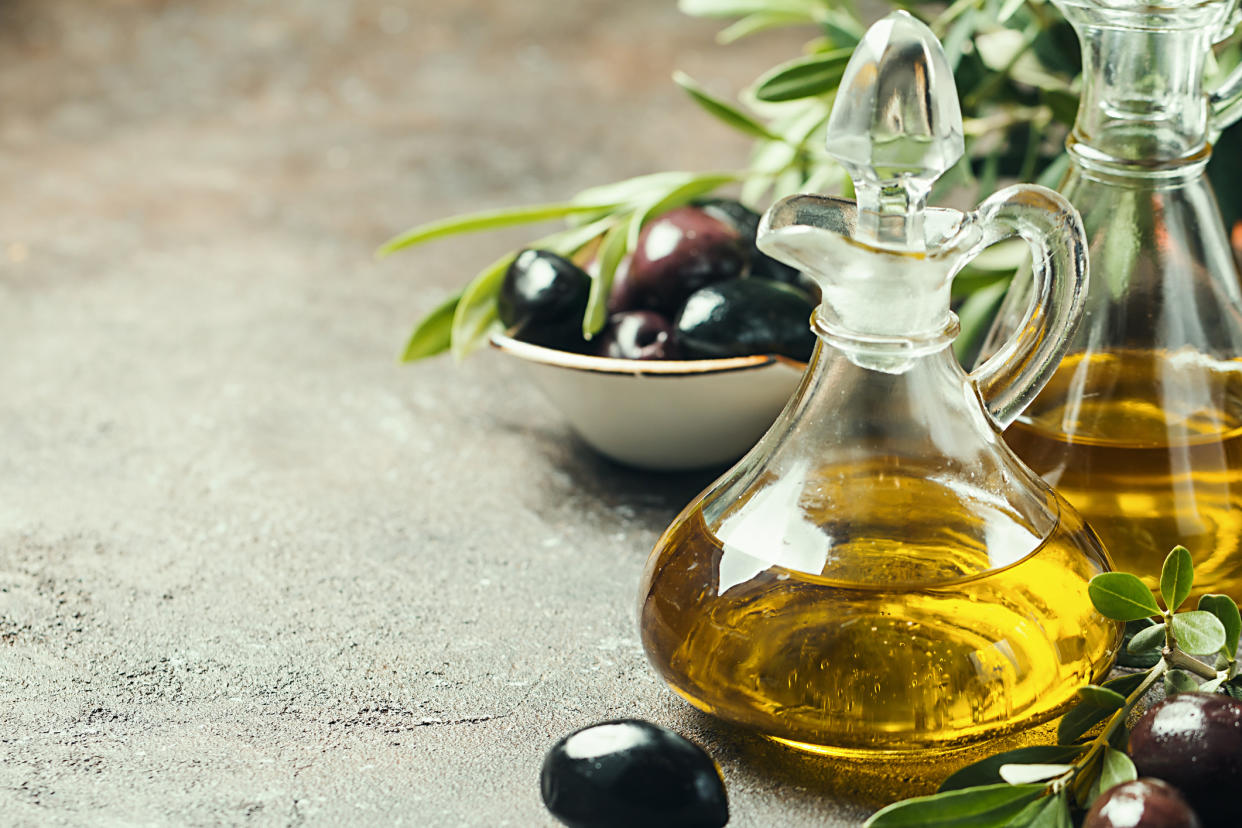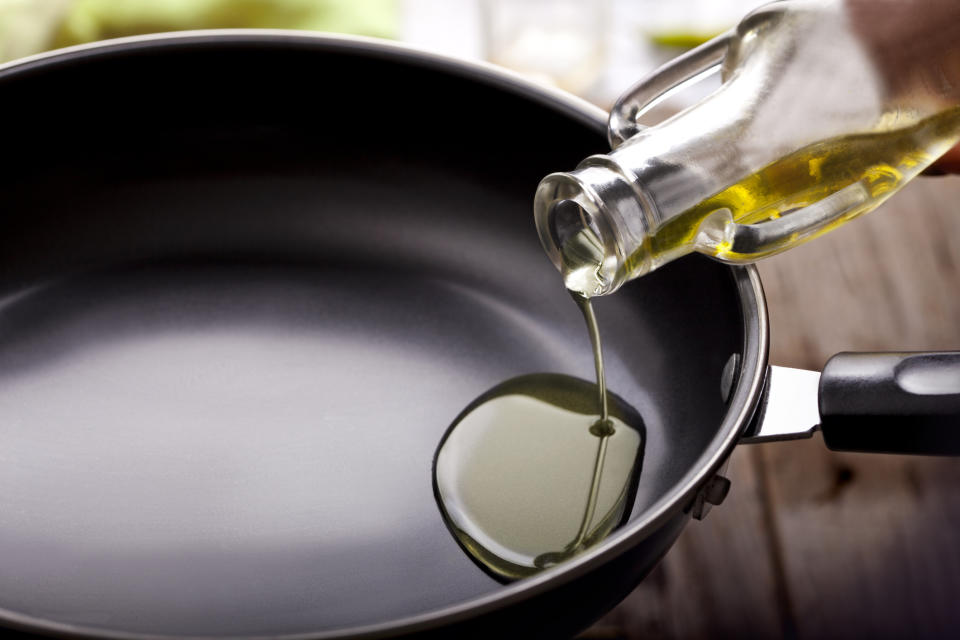Olive oil still healthy when we cook with it, research suggests

We know that a Mediterranean diet rich in extra virgin olive oil could have benefits for our health, particularly due to its antioxidant content.
What we don’t know, however, is whether it is the best oil to use when cooking and whether using it to cook with still means it retains its health pro-points.
New research, by the University of Barcelona, found that olive oil still retains its levels of antioxidants, when used for cooking.
The study, published by the journal Antioxidants, was designed to test whether the health benefits of olive oil consumption still exist when the oil is used for cooking.
Experts have recently concluded that the Mediterranean diet, which typically includes olive oil, is better for our long term health.
The study, published in the American Journal of Clinical Nutrition, measured everything from glucose levels to blood pressure and there was found to be a marked improvement with both.
These factors contribute to the reduction of cardiovascular disease and diabetes.
Read more: Western diet may wreak havoc with your memory
According to researchers for the latest study, extra virgin olive oil is the main source of fat of the Mediterranean diet and contains a unique combination of fatty acids with a higher content of antioxidants than other oils.
Its benefits for the health are mainly linked to these compounds, named polyphenols, but researchers wanted to analyse whether the cooking process may degrade and transform these polyphenols.
For the study, researchers simulated the cooking conditions of a domestic kitchen and studied the effects of time and temperature in the degradation of the antioxidants.
The results revealed show that during the cooking process, the content of polyphenols decreased by 40% when cooked at a temperature of 120ºC and by 75% at 170ºC, compared to the levels of antioxidants in raw olive oil.
While the cooking time also had an effect on individual phenols, it did not effect the total content of the phenol.
Read more: 5 foods you didn’t know are 1 of your 5-a-day

But, despite the impact, overall researchers concluded that even when cooking the levels of antioxidants keep fulfilling the parameters stated as healthy by the European Union.
“Despite the decrease in concentration of polyphenols during the cooking process, this oil has a polyphenol level that reaches the declaration of health in accordance to the European regulation, which means it has properties that protect oxidation of LDL cholesterol particles,” lead study author Julián Lozano explains.
The researchers now hope to carry out further research to analyse the effects of cooking with extra virgin olive oil with other food elements.
“Moreover, we should conduct random research studies in humans, in which we would compare the potential benefits we obtain when cooking with quality extra virgin olive oil compared to other oils", concludes the researcher,” Lozano adds.
Read more: One sugary drink a day could 'raise the risk of a heart attack or stroke in middle age'
What is a Mediterranean diet?
According to the NHS a Mediterranean diet is generally high in vegetables, fruits, legumes, nuts, beans, cereals, grains, fish, and unsaturated fats such as olive oil.
It usually includes a low intake of meat and dairy foods.
The Mediterranean diet has been linked with good health, including a healthier heart.
Several bodies of research have previously linked the Mediterranean diet to lower rates of chronic diseases and a longer lifespan.
A 2019 study published in the journal Nutrients concluded that the diet can reduce the risk of disease in healthy individuals and can improve “cardiodiabesity,” which includes type 2 diabetes, cardiovascular disease, cancer, and obesity.
While the diet has long been hailed as a way of living longer and helping to lose weight, research also suggests a diet of fruit, vegetables, nuts and fish could also prevent depression.


